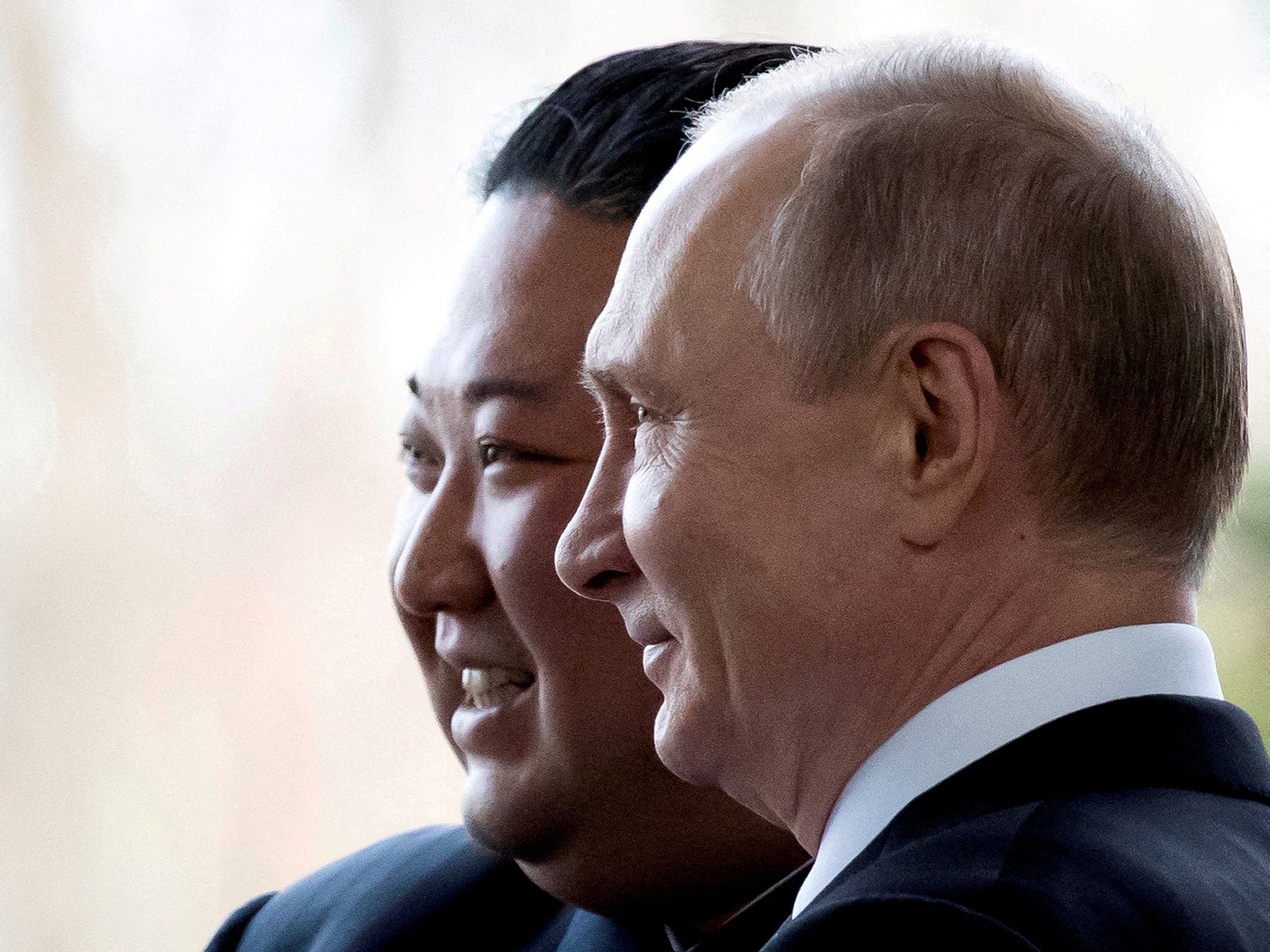Infamous North Korean recluse Kim Jong Un does not leave the Korean Peninsula much, but he’s currently on route to Russia to meet Vladimir Putin.
It’s the first time that Kim, who’s making the long journey by train, has left the North in some four years, and his last trip abroad was also to the Russian city of Vladivostok where he’s expected to disembark on Tuesday. The Kremlin is treating it as a full state visit.
What do the two autocratic leaders want from one another? After 18-months of war in Ukraine, the Kremlin is reportedly in the market for weapons due to depleted stockpiles and large quantities of faulty munitions. What’s more, Western sanctions have made it harder for Russian arms companies to import critical parts to make new weapons. The Kremlin has already turned to fellow rogue friend Iran for assistance.
But Pyongyang can help too. Having invested the bulk of state funds into his war machine – even as his population goes hungry – Kim Jong Un has rockets, ammunition and artillery shells aplenty to offer the Kremlin, many experts say.
It wouldn’t be an unprecedented move either: Pyongyang has long helped sanction-hit states like Syria and Myanmar skirt sanctions by selling them arms.
That said, given North Korea’s penchant for secrecy, it’s impossible to know how much help Kim can really offer – Vladimir Putin will most certainly want to know.
What does Pyongyang want in return? The cash-strapped, heavily sanctioned regime reportedly wants grain and cheap oil from Moscow. Kim may also want access to advanced rocket technology for his nuclear weapons program. Still, both sides will have to come up with prices the other is willing to accept.
Two rogues sending a message: Setting aside the transactional nature of the meeting it also provides an opportunity for two leaders isolated from the West to show that they have options – even if those options aren’t great.
